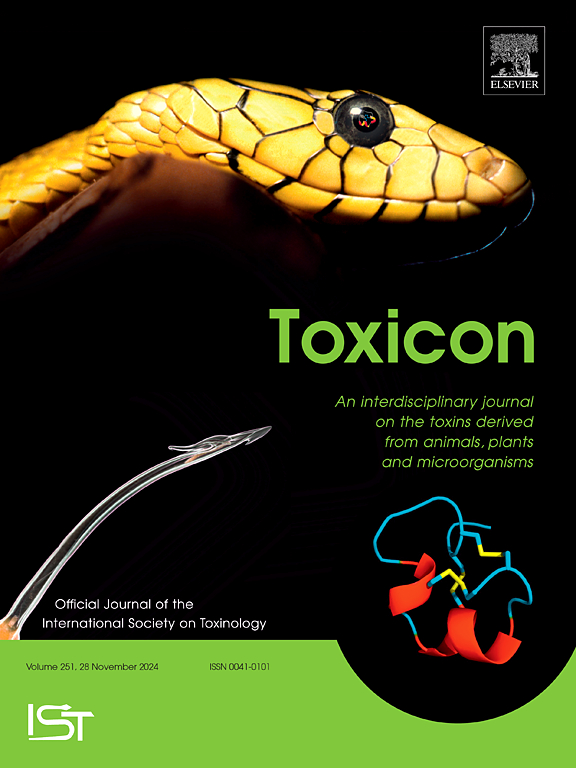儿科蛇咬伤管理的挑战:来自斯里兰卡农村的医生观点
IF 2.6
4区 医学
Q2 PHARMACOLOGY & PHARMACY
引用次数: 0
摘要
目的:本研究旨在探讨斯里兰卡三家主要转诊医院的儿科急诊团队在处理儿童蛇咬伤病例时遇到的挑战。方法采用焦点小组讨论(fgd)对来自Polonnaruwa和Trincomalee地区综合医院、Kurunegala教学医院和同一地区周边医院的处理儿童蛇咬伤的医生进行定性探索性研究。专题分析用于确定与临床决策、获得医疗保健服务、抗蛇毒血清和医疗用品的可获得性、能力建设、跨学科合作和政策相关问题相关的关键挑战。结果发现了一些挑战,包括由于社区误解而延误寻求医疗服务,外围医院获得抗蛇毒血清的机会有限,重症监护设施不足以及临床培训存在差距。临床决策的可变性和缺乏标准化的儿科治疗指南进一步复杂化了管理。与会者强调需要跨学科合作、改进转诊网络和有针对性的教育干预来解决这些差距。结论斯里兰卡的儿科蛇咬伤管理受到系统、基础设施和教育挑战的阻碍。加强医疗保健基础设施、确保公平获得抗蛇毒血清、实施标准化治疗方案和加强医疗保健提供者的培训计划是改善患者治疗结果的关键步骤。政策层面的干预措施和社区教育举措对于减轻求医延误和提高认识是必要的。本文章由计算机程序翻译,如有差异,请以英文原文为准。
Challenges in paediatric snakebite management: physician perspectives from rural Sri Lanka
Purpose
This study aims to explore the challenges encountered by paediatric emergency care teams in managing snakebite cases in children across three major referral hospitals in Sri Lanka.
Methods
A qualitative exploratory study was conducted using focus group discussions (FGDs) with physicians who manage paediatric snakebites from Polonnaruwa and Trincomalee District General Hospitals, Kurunegala Teaching Hospital, and peripheral hospitals in the same districts. Thematic analysis was used to identify key challenges related to clinical decision-making, access to healthcare services, availability of antivenom and medical supplies, capacity building, interdisciplinary collaboration, and policy-related issues.
Results
Several challenges were identified, including delays in seeking medical care due to community misconceptions, limited access to antivenom in peripheral hospitals, inadequate intensive care facilities, and gaps in clinical training. Variability in clinical decision-making and the absence of standardized paediatric treatment guidelines further complicated management. Participants emphasized the need for interdisciplinary collaboration, improved referral networks, and targeted educational interventions to address these gaps.
Conclusions
Paediatric snakebite management in Sri Lanka is hindered by systemic, infrastructural, and educational challenges. Strengthening healthcare infrastructure, ensuring equitable access to antivenom, implementing standardized treatment protocols, and enhancing training programs for healthcare providers are crucial steps in improving patient outcomes. Policy-level interventions and community education initiatives are necessary to mitigate delays in care-seeking and enhance awareness.
求助全文
通过发布文献求助,成功后即可免费获取论文全文。
去求助
来源期刊

Toxicon
医学-毒理学
CiteScore
4.80
自引率
10.70%
发文量
358
审稿时长
68 days
期刊介绍:
Toxicon has an open access mirror Toxicon: X, sharing the same aims and scope, editorial team, submission system and rigorous peer review. An introductory offer Toxicon: X - full waiver of the Open Access fee.
Toxicon''s "aims and scope" are to publish:
-articles containing the results of original research on problems related to toxins derived from animals, plants and microorganisms
-papers on novel findings related to the chemical, pharmacological, toxicological, and immunological properties of natural toxins
-molecular biological studies of toxins and other genes from poisonous and venomous organisms that advance understanding of the role or function of toxins
-clinical observations on poisoning and envenoming where a new therapeutic principle has been proposed or a decidedly superior clinical result has been obtained.
-material on the use of toxins as tools in studying biological processes and material on subjects related to venom and antivenom problems.
-articles on the translational application of toxins, for example as drugs and insecticides
-epidemiological studies on envenoming or poisoning, so long as they highlight a previously unrecognised medical problem or provide insight into the prevention or medical treatment of envenoming or poisoning. Retrospective surveys of hospital records, especially those lacking species identification, will not be considered for publication. Properly designed prospective community-based surveys are strongly encouraged.
-articles describing well-known activities of venoms, such as antibacterial, anticancer, and analgesic activities of arachnid venoms, without any attempt to define the mechanism of action or purify the active component, will not be considered for publication in Toxicon.
-review articles on problems related to toxinology.
To encourage the exchange of ideas, sections of the journal may be devoted to Short Communications, Letters to the Editor and activities of the affiliated societies.
 求助内容:
求助内容: 应助结果提醒方式:
应助结果提醒方式:


